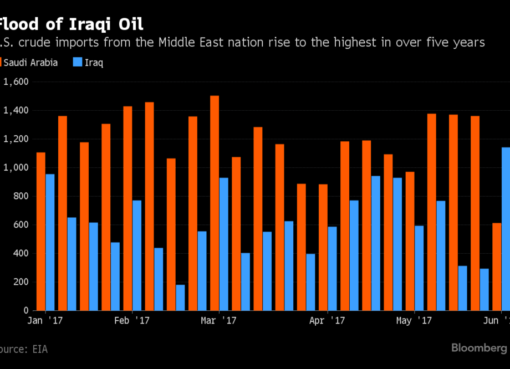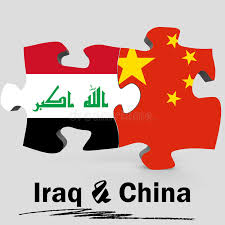By Anna Foster
BBC Middle East correspondent
Tetbaghdad Alina is playing. It’s a favourite Iraqi song, and the passengers are loving every second. Fatima used to be a French teacher. Now she’s a tour guide, and every day she takes as many as 100 visiting Iraqis around the country’s most beautiful sites.
They’re part of a new wave of tourists arriving in Lebanon at exactly the time when many others from around the world have deserted it. In fact, it’s now the number one destination for Iraqi holidaymakers. And their US dollars are proving crucial to the economy.
Lebanon has a lot to offer Iraqi tourists. They can now get visas easily when they arrive at the airport, and they’re cheap. Combined with the good exchange rate, it makes a trip here attractive even to lower earners, because their money goes a long way.
Janna Hussein is visiting from Baghdad. We share a red gondola on the Teleferique du Liban, the cable car that ferries passengers up the towering mountains at Jounieh. From its curved windows, the views of the coastline are spectacular, and her phone is constantly in her hand as she gathers photos and videos for her social channels.
Janna Hussein says her money goes further in Lebanon than in other tourist spots
“It’s a very beautiful country, that’s why we come here,” she tells me. “We didn’t come before, but now it’s different. There’s no difficult visa to get, plus the US dollar is worth more, so for us it’s one of the cheapest destinations to come as tourists.”
But what about the problems in Lebanon – the power cuts, the currency problems, the shortages? “We’re used to that,” she smiles. “Even in Iraq we don’t have electricity. And the people are tired, they need to relax and unwind. So they come here.”
Abdulqadir al-Jamili from the Iraqi Tourism Authority agrees that his people are resilient. “We’ve been through these kinds of difficulties for many years. The political conflicts in Lebanon and Iraq are a daily life that both countries are living. So it’s not difficult at all for Iraqis to go to Lebanon, regardless of the economic or security problems it has.”
There are other reasons too. Many Iraqis used to visit neighbouring Turkey. But in July, a picnic site in northern Iraq was hit by artillery shells, killing eight tourists. Turkey denied any involvement, but some people changed their holiday plans in anger, like Ahmed Saleh. “After the bombing, I don’t feel secure going to Turkey because we’re never assured what the next step is if an escalation with the Iraqi government were to happen in the future.”
Ahmed arrived in Lebanon from Iraq a few days ago, and we talk while strolling around the pretty, boat-filled marina in Byblos. Politics was just one part of his choice to come here.
“In Iraq we don’t have many places to visit to get out of that tension zone, so we usually travel, and you go to the easy countries,” he said. “I decided on Tuesday that I wanted to travel, and on Wednesday I was on the plane.”
Ahmed Saleh and his wife pose for a selfie on Lebanon’s Mediterranean coast
Lebanon’s currency has lost 90% of its value in the last few years, and the economy is struggling badly. The vast majority of Lebanese are now living in poverty, and even managing to afford life’s basics is a struggle. Many simply don’t have excess cash to spend on things like shopping and eating out. So the money Iraqi tourists bring with them and spend in places like shops and cafes is helping to keep businesses afloat.
Today, tour guide Fatima Zgheib has brought a group to the Bekaa Valley. They stop for a plate of juicy lamb-stuffed sfiha pastries. In this region you’ll find the best ones in Lebanon.
Julia Na’mhaz works at Lakkis Farm, a bustling restaurant on the main highway. “For sure, it’s a big change having the Iraqi tourists here,” she explains. “Especially this year, there’ve been so many of them. If they weren’t here, we would feel the difference because the numbers are very high. They spend a lot of money in this place. They are definitely activating our economy.”
Dr Sajad Alkafage – one member of the tour group – has been in Lebanon for 28 days, travelling right across the country to take in its historic attractions. Their final stop of the day is to admire the 2,000-year-old ruined Roman temples at Baalbek. They’re stunning to look at – huge chunks of buttery-golden stone and towering columns reaching towards the sun. They’re also some of the most historically valuable in the world, but the wide-open courtyard is far from crowded.
Iraqi tourists are helping to revive the hard-hit Lebanese economy
“The main reason I chose to come to Lebanon is that it’s close to Iraq,” Sajad explains, “and our two peoples are close to each other too. We have our common Arabic language and friendly relations. I’ve been almost all over Lebanon and I’ve seen many Iraqis. We both love and support each other during our crises.”
And his guide Fatima, who was encouraged in her change of career by her Iraqi friends on social media, thinks her new direction is vital. “We don’t have industry, we don’t have trade, we have nothing in Lebanon. That’s what attracted me to tourism. It’s the best way to save the country.”
Despite Fatima’s hopes, tourism alone isn’t enough to reverse the country’s failing economy. The problems are just too big. But every dollar spent by these new Iraqi tourists does help people like her to survive Lebanon’s financial crisis.
Source: BBC News
https://www.bbc.com/news/world-middle-east-63329846








Comment here